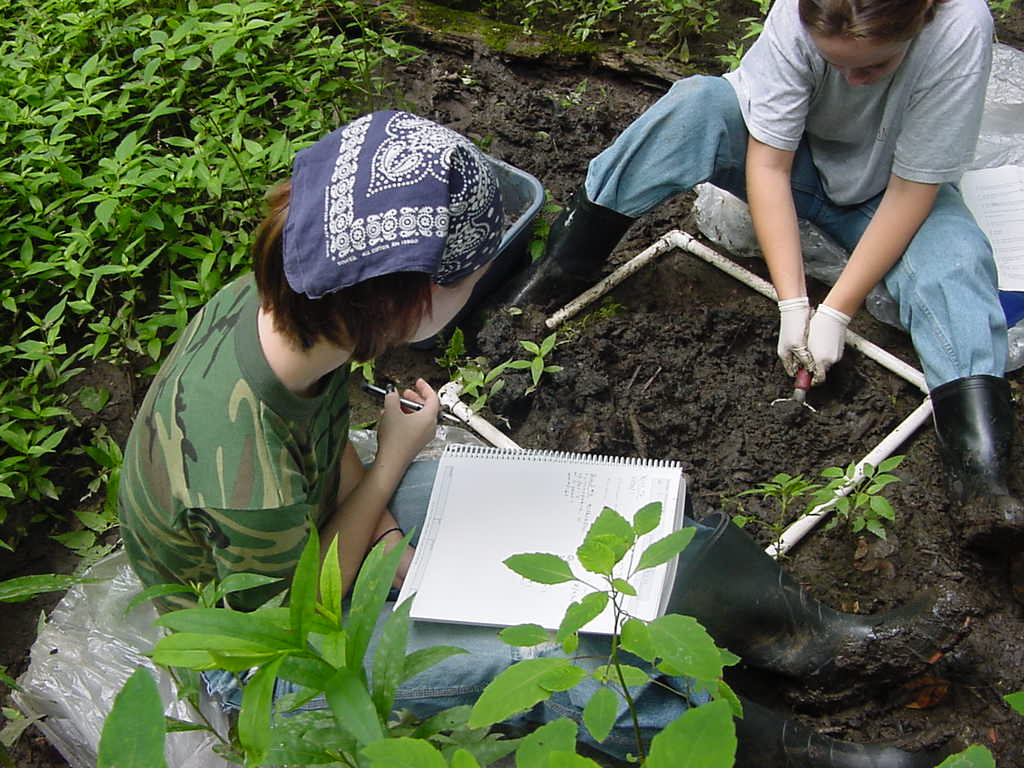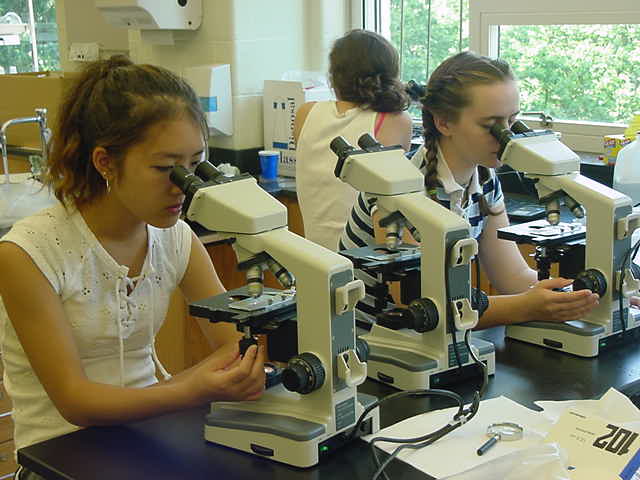![]()
|
|
| The
2003 Environmental Science Summer Research Experience for Young Women ran
from July 7 to July 25. Ten interns participated in this year's
program. We would like to thank the National Science Foundation for helping support the 2003 program through the Baltimore Ecosystem Study project at the Institute for Ecosystem Studies.
|
|
ESSRE 2003 kicked off on
July 7, 2003. Students in grades 9 and 10 from Roland Park Country School,
Atholton High School, and Centennial High joined forces to complete their Smithsonian Protocol Biota Surveys on the
three microclimates that were being investigated this year. (More information on
the specific microclimates can be found below.) They braved the heat, pending torrential
storms, steep inclines and tromped through thick mud and wild brush to gather
data and experience the great outdoors, right in our own backyard.
microclimates can be found below.) They braved the heat, pending torrential
storms, steep inclines and tromped through thick mud and wild brush to gather
data and experience the great outdoors, right in our own backyard.
 But there were more trials to come...
But there were more trials to come...
The interns then focused their time in the lab to complete the somewhat daunting amount of serial dilutions and chemical testing. The groups tested for such things as bacteria, fungi, protozoa and algae populations, organic and inorganic nutrients and soil texture.
They then had to perform painstaking statistical analysis on all the data, comparing Quadrats as well as sites. Once all the analysis were completed, the interns used the statistical analysis of the sites to form research questions, which they could pursue in the remaining week and a half.
Microclimate Biota Surveys...
|
|
|
|
|
Mariel Torres (Teaching Assistant) Click here to view Quadrat Data and Site Summaries for Site 3 |
David Brock (Project Director) Click here to view Quadrat Data and Site Summaries for Site 2 |
Katie Loya (Teaching Assistant) Click here to view Quadrat Data and Site Summaries for Site 4 |
The Research Questions...
determining whether there is a correlation between the amounts of ferric iron and manganese in the soil and the density of plants growing there (web lesson 1 & research paper 1)
exploring the relationship between the density of earthworms and aluminum levels in the soil (web lesson 2 & research paper 2)
examining the effects of water on the correlation between key compounds in the nitrogen cycle and the density of heterotrophic bacteria in the soil (web lesson 3 & research paper 3)
All in all, in spite of mud, mud, and more mud (the drought was definitely over!), everyone learned a lot, made new friends, and had a good time. To learn more about our adventures this summer, click on any of the pictures above to see short movies (120-330 Kb) of our time together or follow this link to watch our slide show (2.3 Mb). If you have comments or questions, please feel free to contact the project director by e-mail at STEMteacherEmeritus.rpcs@gmail.com or directly at 410/323-5500 ext 5500. For further information, follow the links below to the topic(s) of your choice.
Background courtesy of http://www.ultimate.org/images/graphics/backgrounds/psybackgrounds.html.